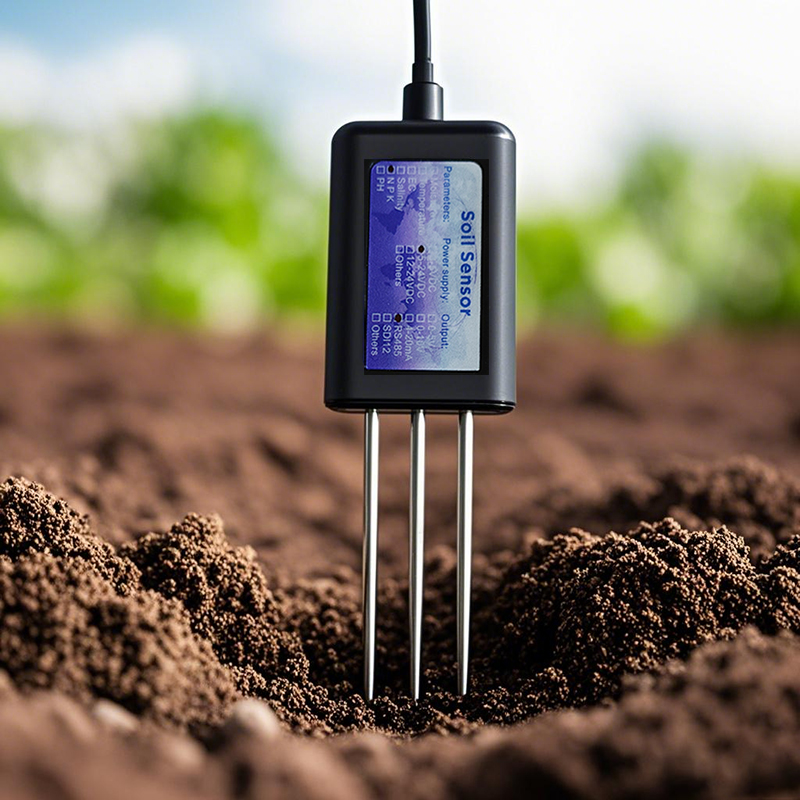In modern agricultural production, the quality of soil directly affects the growth and yield of crops. The amount of nutrients in the soil, such as nitrogen (N), phosphorus (P) and potassium (K), is a key factor affecting crop health and yield. As a high-tech agricultural tool, soil NPK sensor can monitor the content of N, P and K nutrients in soil in real time, helping farmers to accurately fertilize and improve agricultural production efficiency.
1. Basic principle of soil NPK sensor
The soil NPK sensor monitors the concentration of nitrogen, phosphorus and potassium in soil in real time by means of electrochemical or spectral analysis. The sensors convert the measurements into electrical signals that are transmitted wirelessly to the user’s phone or computer, allowing farmers to access the nutrient status of the soil at any time. This technology makes soil management more scientific and efficient.
2. Main functions of soil NPK sensor
Real-time monitoring: It can monitor the changes in the content of N, P and K in the soil in real time to help farmers understand the nutrient status of the soil in time.
Precise fertilization: Based on sensor data, farmers can achieve precise fertilization, avoid environmental pollution caused by excessive fertilization, and ensure that crops get the nutrients they need.
Data analysis: After data collection, it can be analyzed through software to generate detailed soil nutrient reports to provide a scientific basis for agricultural decisions.
Intelligent management: Combined with the cloud platform, users can view soil conditions through mobile applications to achieve remote monitoring and management.
3. Advantages of soil NPK sensor
Increased yield: With precision fertilization, crops are provided with a more suitable nutrient supply, resulting in increased yield and quality.
Reduce costs: Reasonable fertilizer use can effectively reduce agricultural production costs and reduce the economic burden of farmers.
Protect the ecological environment: Precise fertilization reduces the waste of fertilizer, reduces the pollution of soil and water, and contributes to sustainable development.
Simple and easy to use: Modern NPK sensors are designed to be user-friendly and easy to operate, suitable for agricultural producers of different skill levels.
4. Application field
Soil NPK sensors are used in a wide range of agricultural production scenarios, including:
Field crops: such as wheat, corn, rice, etc., to provide farmers with accurate fertilization guidance.
Horticultural crops, such as fruits and vegetables, are cultivated to improve crop quality through improved nutrient management.
Greenhouse growing: In more complex environments, NPK sensors can help monitor and adjust soil nutrients for healthy crop growth.
5. Summary
Soil NPK sensor is an indispensable tool in modern agriculture, its use can not only improve crop yield and quality, but also effectively reduce production costs and protect the ecological environment. In today’s ever-changing science and technology, with the help of soil NPK sensors, farmers can achieve more scientific and intelligent agricultural management and promote the development of sustainable agriculture.
Let’s embrace technology and use soil NPK sensors to open a new chapter in smart agriculture!
For more soil sensor information,
please contact Honde Technology Co., LTD.
Tel: +86-15210548582
Email: info@hondetech.com
Company website: www.hondetechco.com
Post time: Mar-31-2025


